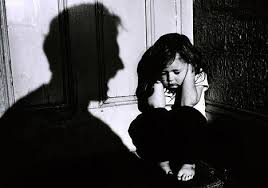Coping with Trauma

“Just as the body goes into shock after a physical trauma, so does the human psyche go into shock after the impact of a major loss.” –Anne Grant
What does it mean to experience trauma? What if one day you were going about your daily business and you receive an unexpected phone call. Suddenly you have found out a loved one has been in a car accident or a natural disaster has struck in a loved one’s city? That moment might change everything. What if something happens to you? Do you quit or run away? In order to properly deal with trauma we need to realize its impact on our life. It can impact our thoughts, behaviors, feelings or relationships.
Maybe you are a refugee and have escaped your country in hope for a better future. Maybe you were subject to child or sexual abuse when you were young. The intensity of the impact trauma will have on our lives is indefinable. Everyone has a different threshold for pain so it is difficult to say how a person may react. Some traumas may be more severe than others but nobody can tell you how you feel. The point is, now you want to move on with your life.
What is Trauma?
We have heard it on the TV, radio and newspapers, but what does it really mean? Trauma can be a result of trying to find your family after the levies break in Louisiana, watching planes crashing into the World Trade Center on the television, listening to recap of the shootings at Virginia Tech, police coming to your door to question a murder down the street or needing to call an ambulance to your home for an unexpected death. Sometimes trauma may have been experienced in the past but something in the present triggers a reminder of those feelings. It may have happened to you or it happened in your world and you were an observer of a traumatic event. Regardless, enough has happened for you to be affected. In times of stress remember Allah and, “Say, “O Allah , Owner of Sovereignty, You give sovereignty to whom You will and You take sovereignty away from whom You will. You honor whom You will and You humble whom You will. In Your hand is [all] good. Indeed, You are over all things competent” (Qur’an 3:26).
Reactions to Trauma
There are emotional responses which we experience as a result of trauma that may include being in a state of shock or feeling numb. There may also be anger toward others involved or feelings of being unsafe or vulnerable. Fear, depression, guilt, frustration, loneliness, sadness are all emotional responses. Physical responses such as dizziness, headaches, muscle tension, upset stomach, and increase in heart rate may occur. There can also be a change in sleep patterns or appetite. Mentally we respond to trauma by confusion, difficulty concentrating or remembering details of the event. Behavioral responses include a fear of being alone or isolating oneself, decreased energy, irritability, crying, etc. Sometimes even marital and relationship conflict or an increased use of alcohol or medications are possible responses.
Certain factors may impact how people react to trauma. It could be the amount of preparation before an event such as a hurricane (more time) versus an earthquake (no time). Perhaps the degree of damage someone experienced physically or to their personal belongings. The amount of devastation witnessed in an event or even the amount of responsibility a person may feel for not preventing or even causing the event.
PTSD
Post-traumatic stress disorder (PTSD) comprises of three types of factors: pre-event factors, event factors and post-event factors. According to the 2005 National Comorbidity Survey-Replication study, PTSD affects about 7.7 million American adults in a given year, though the disorder can develop at any age, including childhood, as reported in NIMH PTSD fact sheet. PTSD is treatable.
Pre-event factors influence how a person reacts to traumatic events such as previous exposure, early substance abuse, gender, age and even genetics. Event factors may contribute to the possibility of developing PTSD. These include geographic closeness to the event, what that event means to you or duration. Post-event factors may be an absence of good social support, neglecting self or being passive.
Criteria for PTSD can be found here: http://www.ptsd.va.gov/professional/pages/dsm-iv-tr-ptsd.asp
Managing Stress
Time for recovery is crucial. Any mental responses listed earlier are most likely short term reactions. However, when they interfere with job responsibilities, seek help through a counselor or therapist. Share your feelings and thoughts with the people closest to you. Talking about our experience is part of the healing process, so don’t try to block recollections. Care for your body by eating well and exercising. Most importantly, don’t compare how other people reacted to the event because each person’s reaction and experience is unique. Seek help through patience (sabr) and prayer (salat) (Quran 2:45). Sabr actually means more than just patience, it also means being steadfast despite what might be happening. Allah knows we have the strength to control our reactions to situations and the proof for that is that we have been given the quality of sabr. It is our choice to put it into practice during stressful times.
Tips:
- Focus on concrete, easily achievable tasks.
- Talk to people who have been supportive in the past.
- Avoid caffeine, chocolate, nicotine or any type of stimulant.
- Find a comfortable environment.
- Look into professional therapy if these symptoms persist.
- Ask Allah for guidance and patience. The Prophet (peace be upon him) said: “Allah is angry with those who do not ask Him for anything.”(Tirmidhi)
Remember that Allah is always with you. “Whoever does righteousness, whether male or female, while he is a believer – We will surely cause him to live a good life, and We will surely give them their reward [in the Hereafter] according to the best of what they used to do.” (Qur’an 15:97)
Refrences
National Institute of Mental Health (NIMH) http://www.nimh.nih.gov
 Dr. Nafisa Sekandari is the director and founder of Mental Health 4 Muslims.com. Dr. Sekandari is currently licensed and practicing in California and Arizona. Dr. Sekandari is also the current founder and director of MH4M Counseling and Education Center in Phoenix, Arizona. Additionally, Dr. Sekandari is a published author and lecturer.
Dr. Nafisa Sekandari is the director and founder of Mental Health 4 Muslims.com. Dr. Sekandari is currently licensed and practicing in California and Arizona. Dr. Sekandari is also the current founder and director of MH4M Counseling and Education Center in Phoenix, Arizona. Additionally, Dr. Sekandari is a published author and lecturer.


What exactly does things like caffeine and chocolate have to do with PTSD and Trauma? Just trying to understand.
Caffeine and chocolate can increase heart rate which can be falsely interpreted as anxiety or make the individual feel anxious.
Thank you. Mine already gets super high sometimes. I can see how that would help make it worse now.